Colloquium on Research Representations of Forests
with Malin Arnell, Dimitris Athanassiadis, Gerd Aurell, Luis Berríos Negrón, Francesco Camilli, Sofia Johansson, Toms Kokins, Eliza Maher Hasselquist, Irma Olofsson, Lars Östlund, Janina Priebe, Per Sandström, Jundan Jasmine Zhang, and invited guest Eva la Cour.
Welcome to a full-day event at Bildmuseet focused on forest research. Join us for a packed program featuring film screenings, panel discussions, and presentations offering various perspectives on the field of forest research and its representation. Free admission, with lunch and coffee provided throughout the day.
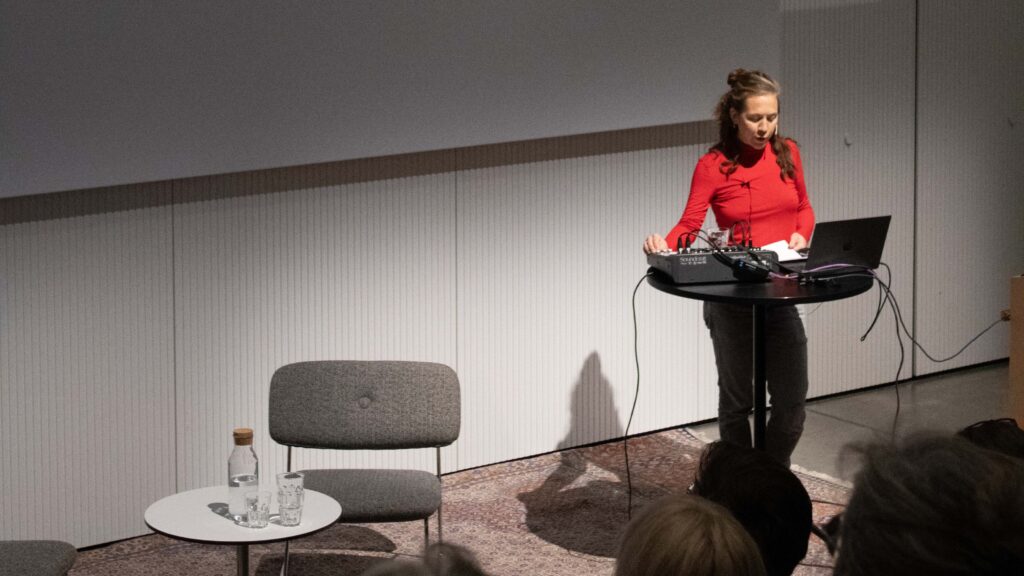
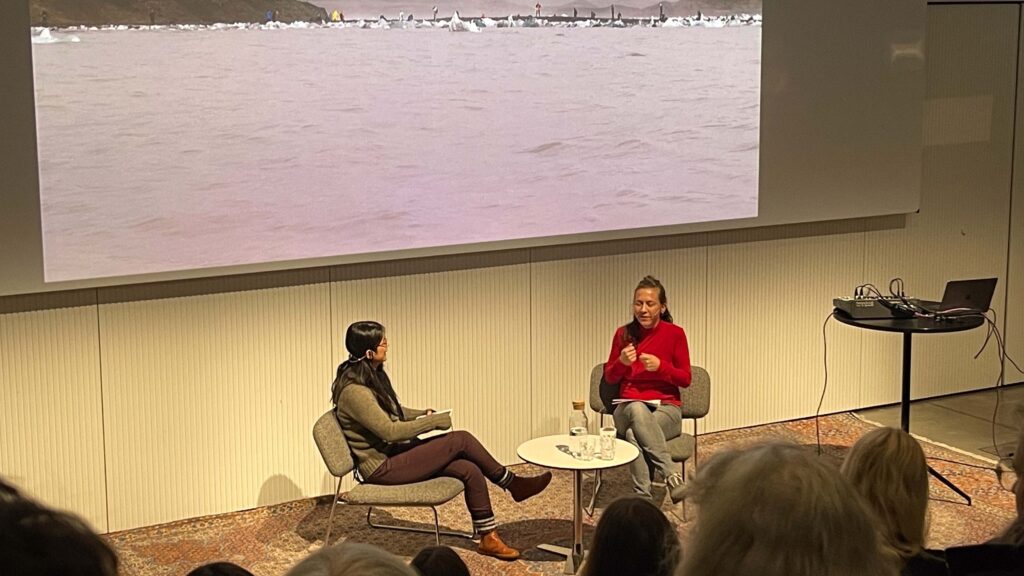
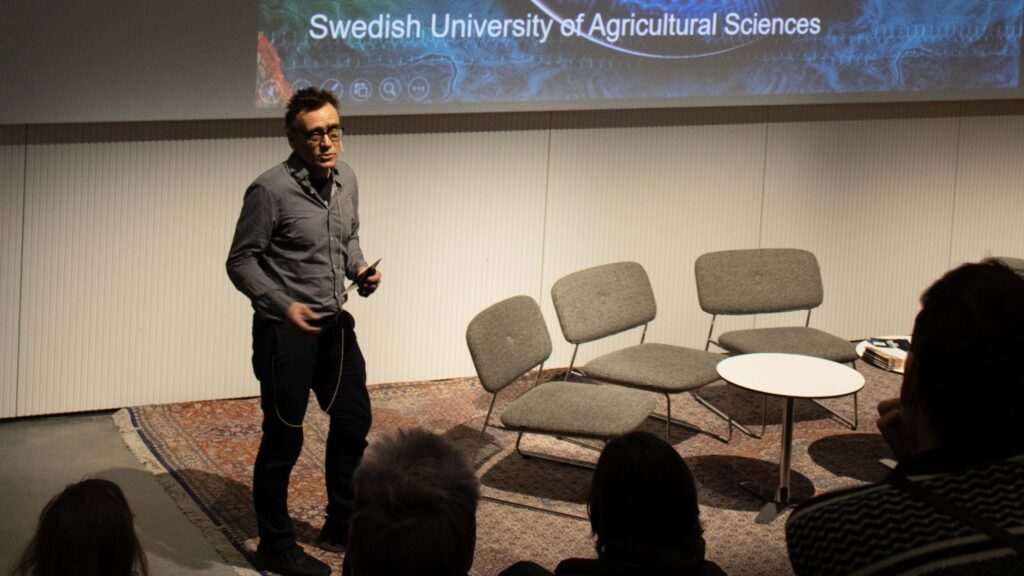
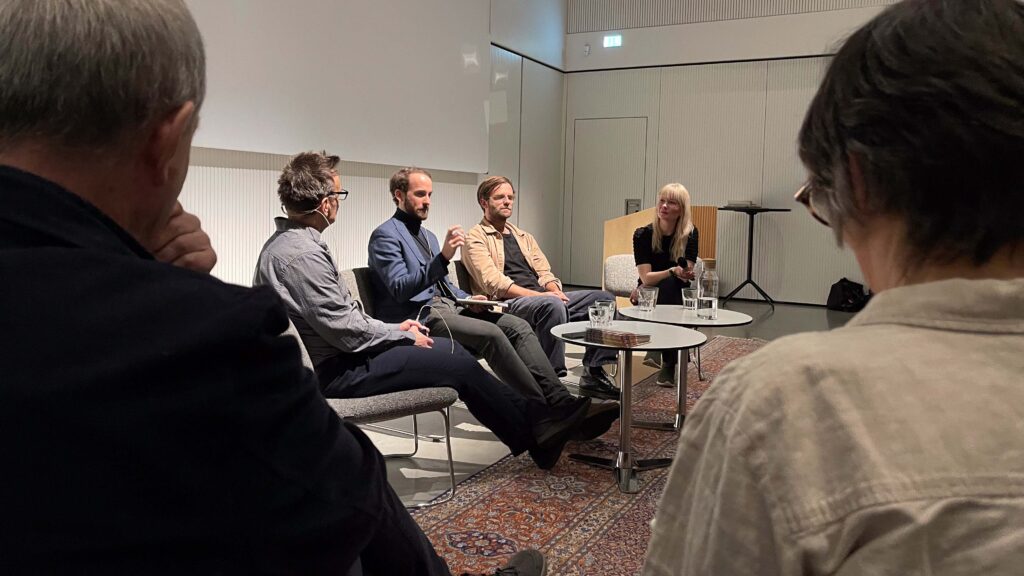
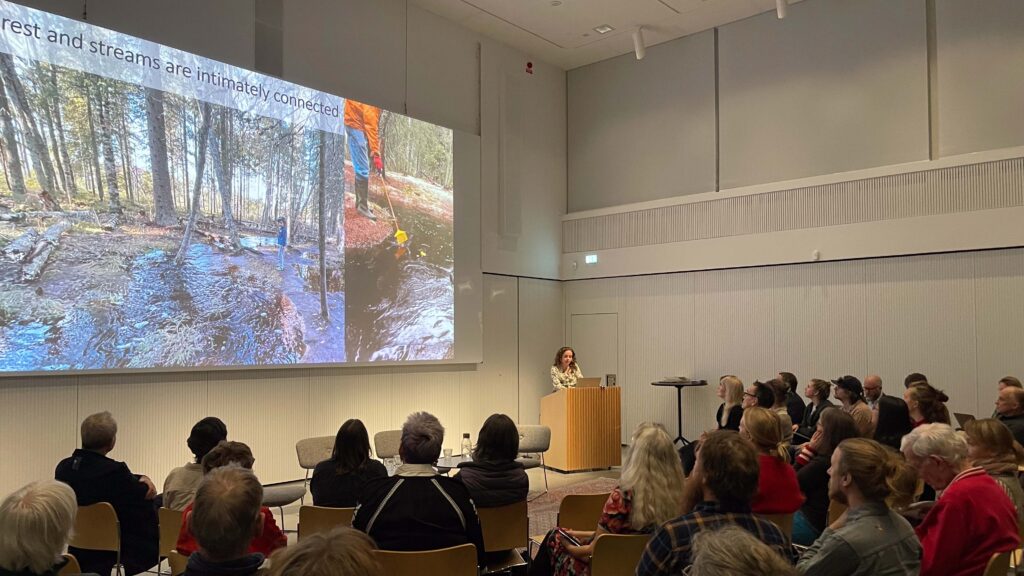
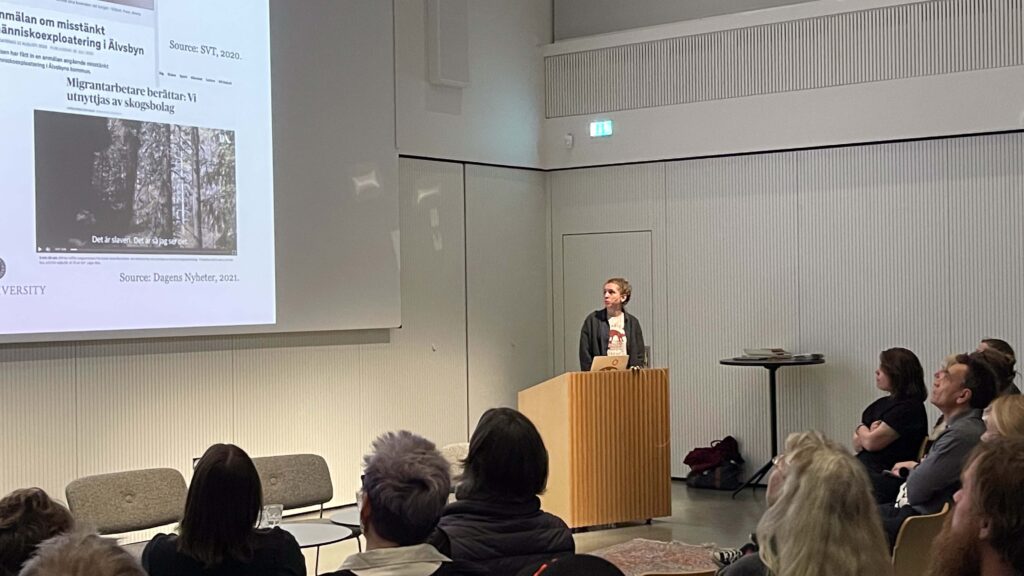
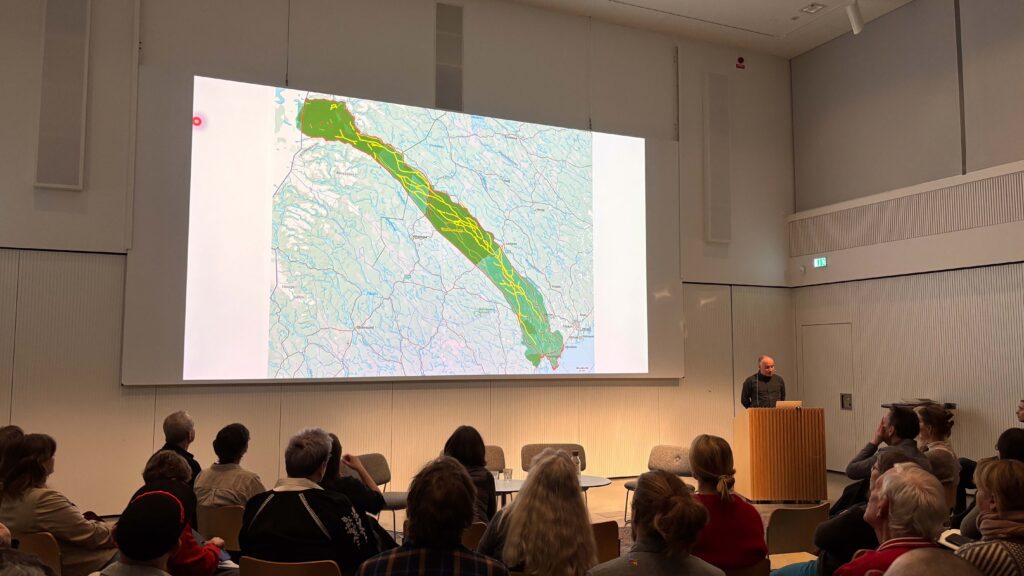
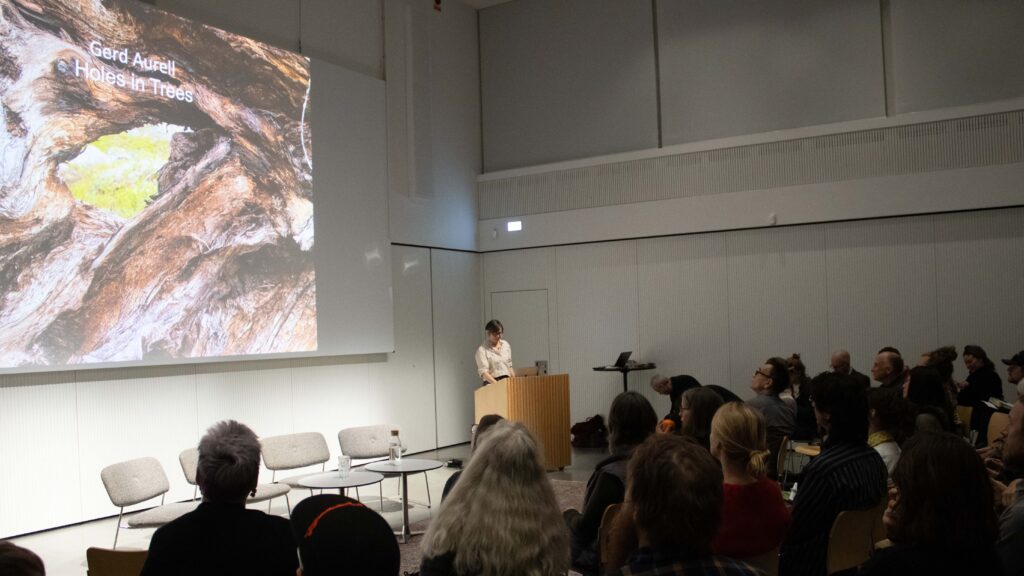
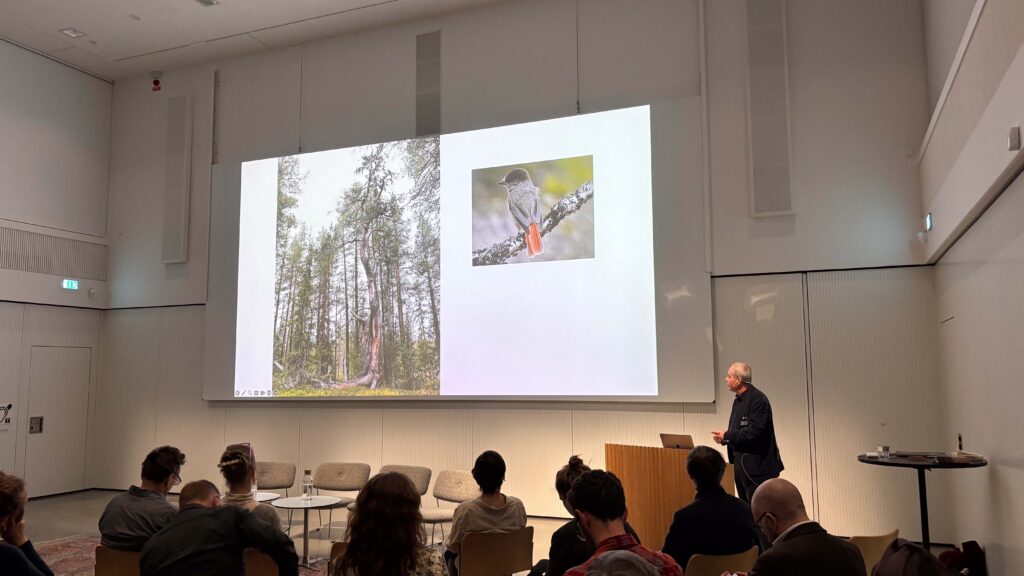
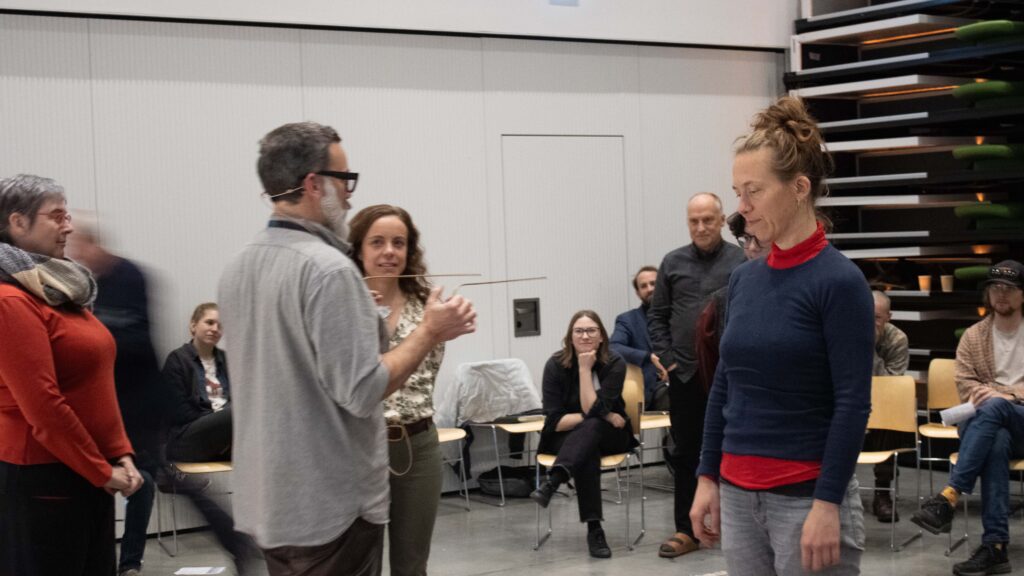
PROGRAMME
9:00 Gather in Bildmuseet reception. Lockers for coats and large bags on level 0.
9:15 – 9:45 Exhibition Walk of Eight Degrees/Contemporary Art on the Forest, with museum curator Sofia Johansson
9:45 Coffee & Tea
10:00 Welcome remarks by Ele Carpenter and Luis Berríos Negrón
10:10 – 10:30 Session 1
Svalbard, a live-narrated montage (Umeå, 2024), by Eva la Cour.
10:30 – 11:00 Session 1.5
Geo-aesthetics and Post-Future Essayism, Eva la Cour in conversation with Jundan Jasmine Zhang.
11:00 – 11:15 Pause
11:15 – 12:00 Session 2
Forests and Urbanity (presentations) moderated by Janina Priebe
With Dimitris Athanassiadis (Urban forestscapes), Francesco Camilli (Practising Wood in Architecture), and Toms Kokins (Sweden’s Timber Empire)
LUNCH
13:00 – 13:30 Session 2.5
Forests and Urbanity (conversation) moderated by Janina Priebe
With Dimitris Athanassiadis (Urban forestscapes), Francesco Camilli (Practising Wood in Architecture), and Toms Kokins (Sweden’s Timber Empire)
13:30 – 14:45 Session 3
Sensing Forests, moderated by Janina Priebe
With Eliza Maher Hasselquist (Capillaries of forests), Irma Olofsson (Peripheral Labour Geographies), and Per Sandström (Building bridges for reindeer! or ignoring them completely: the Svea Hovrätt court case).
14:45-15:00 Coffee and tea with fika
15:00 – 16:15 Session 4
Performing Forests with Gerd Aurell (Tree holes), Lars Östlund (Sámi sacred trees: X-marks and stones in trees), Luis Berríos Negrón (Tree nursing), concluding with “Breathing-with, an exploration through the breath of the forest” by Malin Arnell.
16:15 – 16:30 Open-ended remarks with Eva la Cour
This forest colloquium is organized alongside the exhibition Eight Degrees / Contemporary Art on the Forest in collaboration with UmArts.
As part of the UmArts community, the Geopolitics of the Forests group hosts artist and filmmaker Eva la Cour as guest presenter and respondent. Considering la Cour’s work with geoaesthetics and her “fundamental dissatisfaction with the representational discourse, and its historical and colonial legacy”, the working group will present and contrast mediations of research from our respective disciplines and perspectives in regards to forests.
The day will begin with a walk through the current Eight Degrees/Contemporary Art on the Forest exhibition at Bildmuseet as context, and an initial live narrated screening of la Cour’s recent film work. Then the group members will present in various formats, with research representation and environmental remediation as loose common concerns.
Geopolitics of the Forests is a group of scholars at UmArts who study the forest from different disciplinary perspectives. The day’s moderator and organizer is Luis Berríos Negrón, chair of the Group, Associate Professor at Umeå School of Architecture, and a Research Fellow at UmArts Research Center for Architecture, Design, and the Arts at Umeå University.
